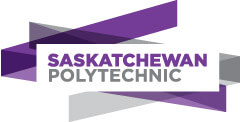About Health Information Management Diploma in Saskatchewan Polytechnic
Program Overview
If you’re detail oriented, self motivated and want a unique career in the health-care industry, consider Saskatchewan Polytechnic’s Health Information Management program. You’ll learn how to collect, organize and manage large amounts of health information, all while meeting privacy standards.
You could work as a health information management practitioner, coordinator or analyst with health regions as well as public and private health agencies-hospitals to cancer clinics and government agencies. Your unique skill set can also open doors to jobs with police forces, educational institutions, law offices, insurance companies and pharmaceutical firms.
Health Information Management is a nationally accredited two-year diploma program offered at our Regina campus and through distance Flexible Learning. Learn from experienced instructors as you build knowledge and leadership skills in:
- data collection, coding and quality;
- electronic health information management (e-HIM®);
- information privacy, security and confidentiality;
- interpretation and analysis of health data;
- patient access to health information;
- records and systems management; and
- transition to the electronic health record.
Work Experience
The program includes two work-based practicums: one in first year, one in second year. It’s a chance to apply your new knowledge and skills in an actual health agency setting. By the time you graduate, you’ll already have 15 weeks of real-world experience - something you can highlight to potential employers.
Diploma to Degree
Use your Saskatchewan Polytechnic diploma to transfer into the third year of a four-year Kinesiology, Health Studies or Arts degree program at the University of Regina or First Nations University of Canada.
Get More Information
For more information on the HIM program, please contact Loretta at loretta.ryan@saskpolytech.ca.
Career and Salary Information
Your Career
Health Information Management graduates work as information management practitioners, coordinators and analysts in many different areas of health care including hospital admitting, quality management, research and statistics, information systems, utilization management and risk management. Look for positions with health regions, government agencies, community clinics, long-term care facilities, home care agencies and mental health or outreach programs. Or transfer your skill set into other areas such as education, law enforcement, insurance and research.
Academic qualification equivalents:
- Grade 12 with a minimum 60% in each of the following subjects: English Language Arts A30, English Language Arts B30, Chemistry 30 and Pre-Calculus 30
English language requirements (one of the below):
- IELTS : Overall minimum score of Band 6.5 with a minimum score of 5.0 in each component.
- TOEFL : An overall minimum score of 81 on the Internet-based Test of English
- PTE : A minimum score of 63 with minimum component scores of 50.
Saskatchewan Polytechnic Highlights
| Type |
Public |
| Campus Setting |
Urban |
| Application mode |
Online and Paper mode available |
| Graduation rate |
62% |
| Acceptance rate |
96% |
| Number of Students |
16,008 |
| Overall cost of living |
14,762 CAD |
| Academic calendar |
Semester based |
| % of International students |
6% |
| Number of campuses |
4 |
| Medium of instructions |
English |
| Undergraduate Tuition fee |
14,044 CAD |
| Postgraduate Tuition fee |
16,426 CAD |
| Cost of living |
694 -1147 CAD per month |
Saskatchewan Polytechnic First-Year Tuition Fees And Living Expenses For International Students
Over the course of one academic year, the following graph displays tuition and living expense estimates in Canadian currency for one full-time international undergraduate student. Please bear in mind that these are only estimates; actual pricing will vary depending on your needs and preferences. Other factors to consider include currency changes, visa and study authorization fees, and vacations back home.
- For international students, the overall fees will range from:-
| Particulars |
Amount |
| Administrative fees |
50.00 to 150.00 CAD |
| Application fees |
150 CAD |
| Student association fee |
95.00 to 445.00 CAD |
| Non-refundable fee at the start) |
1,000 CAD |
| Tuition fee range |
6,195 to 18,089 CAD |
| Laboratory fee |
100.00 to 409.00 CAD with no fees for
some courses which do not have a lab service. |
| Books and Supplies |
200 to 3,725 CAD |
| Technology fee |
50 to 146 CAD |
- For a student of Saskatchewan Polytechnic the required financials (Cost of Attendance) can be:-
| Description of Financials |
Amount in CAD |
| Average cost of tuition |
11245.77 CAD |
| Cost of living |
10799.39 CAD |
| Application fee |
150 CAD |
| Estimated total (per year) |
22,195.16 CAD |
